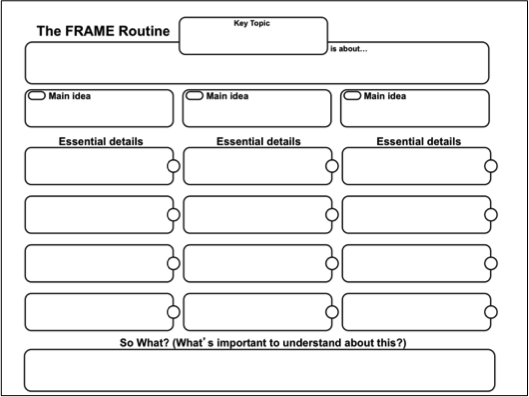Some students with disabilities require accommodations or modifications to their educational program in order to participate in the general curriculum and be successful in school. Each child with autism or Asperger’s Syndrome is different and has their own unique needs. Parents will meet with school personnel in an ARD/IEP meeting to determine what accommodations and modifications should be implemented to best assist their child. It is imperative that parents and educators understand the difference between the two.
For many students with Asperger’s Syndrome, accommodations will be needed to access the curriculum and remain in the least restrictive environment. Accommodations (the HOW) can be made for any student. Students do not need to have a 504 plan or an IEP.
Accommodations do not alter what the student is expected to learn but rather make learning accessible to the student.
They allow the student to demonstrate what they know without being impeded by their disability. Students are required to complete the same assignment or test as other students, but with a change in the timing, formatting, setting, scheduling, response and/or presentation. They do not alter in any way what the assignment or test measures.
(http://www.texasprojectfirst.org/ModificationAccommodation.html)
Accommodations can be referred to as good teaching practices. Here are some common accommodations made for students with Asperger’s, high functioning autism, and other related disabilities.
-
Have a set routine.
Does your child require a visual schedule? Do they need prior notice of any changes in their schedule? Does your child require transitions between classrooms before or after the other students?
-
Extended time to complete the assignment or test.
How much time does your child require to complete the assignment or test?
-
Physical arrangement of the classroom and preferential seating.
Where can your child sit so that the teacher is readily accessible? Where can they sit so that distractions, both auditory and visual, are minimized? Who will be the best classmate for your child to sit next to? Does your child require a quiet area to retreat in times of high stimulation or when overwhelmed?
-
Varying of activities.
This emphasizes varied teaching approaches such as visual, auditory and/or multi-sensory. Does your child need other types of visual supports such as graphic organizers, an outline of the content or chapter, graph paper for math assignments, use of manipulatives, demonstration or modeling, individual or small group instruction, etc.?
-
Allowing for different ways of responding.
Do they need to respond verbally? Does your child need to complete assignments or take tests using a computer or other device?
-
Format of materials is changed to meet the students’ needs.
Do they require the materials be highlighted? Does your child need note taking assistance? Do they need a calculator, computer or word processor? Does your child need larger print? Do the tests need to be multiple choice rather that fill in the blank?
-
Reinforcement provided.
What motivates your child? What interests your child that might be used as a form of reinforcement?
-
Varying forms of instruction delivery.
Does your child require study guides or outlines of the material? Will your child need after school tutoring? Do directions need to be provided in small sequential steps?
Examples of Accommodations
Using a graphic organizer to outline the assignment
Using graph paper for math assignments
If accommodations do not provide sufficient support, modifications (the WHAT) can be selected and implemented to allow the student access to the general education curriculum. Modifications are generally changes made in what is being taught or expected from the student. They alter the content knowledge expectations as well as assessment administration practices. A modification is a change in the course of study, the standards, test preparation, location, timing, scheduling, expectations, student response and/or other attribute which provides access to the general curriculum.
(http://www.texasprojectfirst.org/ModificationAccommodation.html)
Some students with Asperger’s may require modifications to the course content in order to make adequate yearly progress. Here are some common modifications for students with Asperger’s or high functioning autism and other related disabilities.
- Materials are adapted. Vocabulary, concepts and principles are simplified. Does your child require texts be simplified in order to comprehend the content? Does your child require individualized materials?
- Assignments are changed using lower reading levels. Does your child require that classwork and homework be changed using text at their reading level to comprehend the material?
- Testing adaptations are used. Does your child require tests/assessments of reduced length? Do the answer choices need to be reduced? Do the questions and answer choices need to be reworded in simpler language?
- Reduction of classwork or homework. Does your child require shortened assignments?
- Using specialized/alternative curricula written at a lower level. Does your child require an alternative curriculum that is modified in order to understand the concepts?
- Grading is subject to different standards. Does your child need grades to be changed to pass/fail or based on work completion?
Examples of Modifications
Example of an alternate curriculum: Unique Learning Systems
Example of a modified assignment: reduced answer options
Selecting and assessing the effectiveness of accommodations and modifications needs to be an ongoing process. Required accommodations and modifications need to be written into a student’s IEP or section 504 Plan if the student is a student in special education. Both should be selected to fit the student’s individual needs.
Changes should be made as often as needed, with the involvement of the student, parents and educators. For maximum success, it is essential that the chosen accommodations and modifications address the students’ specific areas of need and facilitate the demonstration of skill and knowledge.
by S
Co-Owner/Co-Executive at Bee Social Network
Gabriela Lemos was born in Porto Alegre, Brasil, and was raised in San Antonio, Texas. She is currently a student at UTSA, graduating in December 2014 with a Bachelor degree in English. Brie states that she loves language and words, and the way in which people communicate with each other. She has always been interested and attracted to the autism community. “I find those on the spectrum to be incredible in so many ways, and I believe we can all learn from each other in our different strengths and weaknesses. I would love to use my talents to aid those who are not as strong in areas which I have confidence, and in turn receive an infinite amount of lessons and aid from those who I work with. Everything you send out, comes back to you, and I plan to practice sending out love and compassion every day”. We feel so fortunate to offer Brie’s talent of writing as well as her passion for autism awareness every week through our Aspergers101 Weekly.







WORST EXPERIENCE EVER!!! It was our first time here.
Called in to make an appointment for 3. We got there and waited an extra 30 minutes.
The 2 masseuses that did my girlfriend and I were on there phones while doing our massages.
They were TERRIBLE!!! We’ve had bad ones before but this tops all of them.
I DO NOT RECOMMEND THIS PLACE. There are better ones in the area.
***They need to replace those 2 masseuses***
BEWARE!!! There is a mandatory gratuity for which type of massage you get.
https://hostnegar.com
What a timely piece now! Thank you so much for such a fantastic post.
I saw your publications earlier, but this one I believe on of the the best, same
as this one https://thealexandrianva.com/. How did you find so many details?
I like the way you organize everything, since it’s really easy to read.
All in all, I can recommend this article to everyone who’s interested in that topic.
My son is in 10th grade. He is smart and always finish his homework. But he never get good grade in tests and exams in school. Teachers complain his handwriting, disorganized answers. I don’t know what kind of accommodations should I ask for school district? Can anybody have some good advice for me? I am in Southern California.
I’m about to have an IEP meeting for my son and he’s in advanced classes. He’s a smart boy but with 7 classes he doesn’t complete assignments on time. He doesn’t understand personal space. He has been push down bleachers and kicked. I’m trying to figure out what accommodations I need to request.
As an adult with high-functioning autism , when I was in elementary school I was bored and wanted to learn more, yes I had difficulty expressing my needs and issues of learning that were never addressed until college. I would recommend help to learn more to keep the focus on attainment ability and not on what is recommended for the average student. The main help that is needed is in social skills training, with this being done other challenges will be easier to overcome.
I am a licensed psychotherapist. I am providing counseling services for a ninth grader with severe Asperger’s. He is failing in algebra and the student has repeatedly told the teacher that he doesn’t understand it at all. The teacher insists he remain seated and quiet. Alternative methods of learning are being denied (ie. Self paced learning options such as online courses). This student is very agitated that he is forced to sit in the classroom and his meltdowns/outbursts have increased. Also, this public school offers a picnic bench outdoors (weather permitting) for students requiring a low distraction environment for test taking.
I attended his IEP meeting and I was appalled at the school’s cavalier attitude regarding their failure to provide much needed and legally mandated accommodations.
providing reasonable, Dacians
Thank you SO much for this information, My name is Dr. Pete Post and I teach a master’s level course at Trinity Christian College. One of my students just shared this resource as she has decided to do her research on Asperger syndrome. All teachers can benefit from these resources and will certainly help Melissa in her teaching as well.
Hello, my name is Yesom and I have a child who was diagnosed with Asperger syndrome when she was 9 years old. I’ve been struggling with the situations as what other people have (who have a child with Asperger syndrome). However, it’s time for her to choose a high school for next year and I really have a no idea with it, so if anyone knows a good high school for asperger kids, please share some imformations with me.
what do you do when the teacher say she cannot stand the noise the child make as they do frustrated and is keeping note for the counselor to use against the child.
Thank you for this information. We have a high-functioning autistic son that goes to a PISD (Plano ISD) high school. He is in GenEd, currently, as well as during his middle school years. He just started 9th grade and just after a week of school, his teachers already suggested to pull him out of their classes because they could see that our son is struggling. His case manager already scheduled an ARD meeting next week to talk about it and I wanted to be ready with all the questions I need to ask. Will you be able to give me a list of questions that I can ask in the meeting? Your help is very much appreciated. Thank you.
I am an unemployed doctor for 25 years with very high IQ and standard test scores. I have been undiagnosed and bullied and miss diagnosed by incompetent Administration. With schizophrenia and various variations on this theme. They believe that this misdiagnosis is preventing me from work. We ran up perhaps 1,000,000 dollars of legal battles and the only thing the incompetent Administration can prove is that passing grades are the same as failing grades!!!!!! So recently a psychologist claims that I have a sub clinical form of Autism Spectrum Disorder but still I am unemployed and there are no resources or accomodations that any reasonable medical establishment can offer an indigent patients like myself to get back to full time employment. I live in the backwards state of Alabama!. I was encouraged to write my story. It is called, “Exposing the dangers and true motivations of conventional medicine a summary of the most commonly misdiagnosed illnesses of modern medicine by Dr Kevin Ford”. Published by Lu lu books and at all on line book stores world wide. However, I am unemployed!!!!! Kevin Kazakevich M.D. living in Gardendale, Alabama.
Ghello my name is Heidi Diffley and I’m having one heck of a time with our school district and their noncompliance with my sons iep, my son has aspergers syndrome and is in the 12th. Grade. Seems the Warwick r.i. high school no longer cares about special needs children and the extra help needed to be successful. ive spoke to the social worker there and nothing seems to be happening. they have taken away the para’s that my son needs and placed him in regular classes except for p.e./ they have kept his a.p.e. he was a straight a student, now he is always having meltdowns and upset, he hates the school and wants to be put in a autistic high functioning school, I have not found any of those in rhode island other than groden which is not a school. they cant see him til 2017.. if you have anything you can help me with this that would be great..i also need a pysc. for sean, one who knows aspergers……
I am just now seeing your concern. I teach 4th grade and have an AS student. I make accommodations for him and he is doing well in my room (My kids and I ADORE him, though I do get stressed sometimes with his needs – and the fact I have 25 other students). His grades have really gone down in math and science (a different teacher who has never taught elementary. She taught HS for 10 years). Anyway, the mother was extremely concerned and called a meeting to voice these concerns. She wanted the “team” present: Principal, both regular teachers, Sp. Ed teacher, and his aid. We discussed her concerns and what we could do to help her son. I would suggest having paperwork (IEP?) which lays out what his accommodations are supposed to be. Is the school providing it? I would have copies of research (such as from websites like this) which explains modifications for AS students. I have butted heads with the math/science teacher. The mother loves me and knows I make accommodations. Please let me know if this helps you.